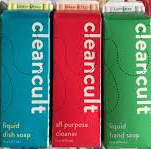 I’m tired. Tired of Covid-19, physical distancing, and not being able to do justice to the worthy Lenten projects I had committed to. I’ve been a “good girl.” I made masks for Jim and me. I complied with social distancing, but I wanted to do more direct service for those in need. It all came down to money.
I’m tired. Tired of Covid-19, physical distancing, and not being able to do justice to the worthy Lenten projects I had committed to. I’ve been a “good girl.” I made masks for Jim and me. I complied with social distancing, but I wanted to do more direct service for those in need. It all came down to money.
I don’t consider myself rich but I’ve spent enough time with those in real poverty to know that I am at least comfortably middle class. Certainly millionaires can use their money to do a lot of social good but what can a person on Social Security and a modest pension do to help those in greater financial need? Following are 6 ways that I found to spend my money to serve others.
1. Donate our $1,200 government relief checks to causes we support with our time. So far we’ve donated to Intercommunity Justice & Peace Center, First Shift (a non-profit that gives legal help to mothers in low wage jobs to prevent job loss, Catholic Worker House, and food vouchers to a few panhandlers. Several friends said they were donating to food banks.
2. Donate to political groups that support the poor and marginalized.
3. Buy household products that might cost a little more but save the environment. For example, I’ve recently tested several cleancult cleaning products (so you don’t have to).
- Liquid hand soap – Cost ($7) slightly more than my previous soap but is thicker, I found I could dilute it with water making it cheaper and it still cleans just as well.
- Dishwasher tablets – Cost ($8.45) almost double my previous tablets.
- Liquid dish soap – Cost ($7) slightly more than an equivalent amount of Ajax. (2020-6-25 update: It seems to clean well. but doesn’t create much suds and doesn’t cut the grease as well.)
- All purpose cleaner – Cost ($7 for a 16 oz. bottle)
When I compared the cleancult products to my previous brands, all seemed to clean as well. I had no need for their laundry tabs, dryer balls, bar soap, or funnel since I already had these.
4. Buy energy efficient products. Certainly the solar panels we installed a couple years ago and our hybrid car apply. On a smaller scale, however, last winter we had an old space heater that worked but used a lot of electricity. We were about to buy a new energy efficient one when I lucked into finding one on neighbor Next Door.
 5. Create your own food – Of course strictly speaking one doesn’t “create” food because it comes from seeds but I’m counting all the seeds and plants I’ve recently bought for my garden as an investment in food. I probably spent more money per ounce of food I produce than if I bought it in the grocery, but the coronavirus has given me the time to plant and I can also count it as free recreation since digging in the dirt soothes my soul.
5. Create your own food – Of course strictly speaking one doesn’t “create” food because it comes from seeds but I’m counting all the seeds and plants I’ve recently bought for my garden as an investment in food. I probably spent more money per ounce of food I produce than if I bought it in the grocery, but the coronavirus has given me the time to plant and I can also count it as free recreation since digging in the dirt soothes my soul.
6. Free up money – When we repair something or reduce our desire to buy something we free up money to give to those in greater need. One humble action I’ve taken is to save rags to use for clean-ups so I don’t buy many paper towels.
So, I’d like to hear how you might have bought something more expensive but saved money, time, or the environment in the long run.